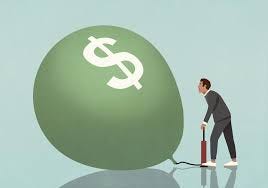Inflation is very much in the news these days. The price of many goods has been rising and wages seem to be increasing as well. We may not yet be in a classic inflationary wage-price spiral, but can it be far off? And what if anything can or should the Fed or other economic policymakers do about rising prices?
The answers to these questions turn on what is actually causing prices to rise. Are prices going up because of overly accommodative monetary policy? Is the long-feared specter of QE finally raising its ugly head? Or are prices rising for some other unrelated reason, perhaps attributable to the temporary or “transitory” disruption of supply chains and shifts in demand triggered during the covid economy, not just in the US but globally?
It is very important that we understand what’s really going on now. I am not an expert on this topic, however, so I will turn you over to one who is, Paul Krugman. You may or may not like Professor Krugman’s politics, but he is generally a pretty thoughtful observer of the macro-economic scene, albeit with his own clearly stated personal biases. I encourage you all to read this Krugman piece from today’s NY Times, particularly those of you inclined to blame the Fed’s easy money policies for all our national economic ills.
Read Krugman here: Inflation Headlines Don’t Tell the Whole Story, NY Times, 11.21.2021
And for a less “wonkish” perspective, read also Neil Irwin’s recent piece in the NY Times, Who’s to Blame for Rising Prices?”


